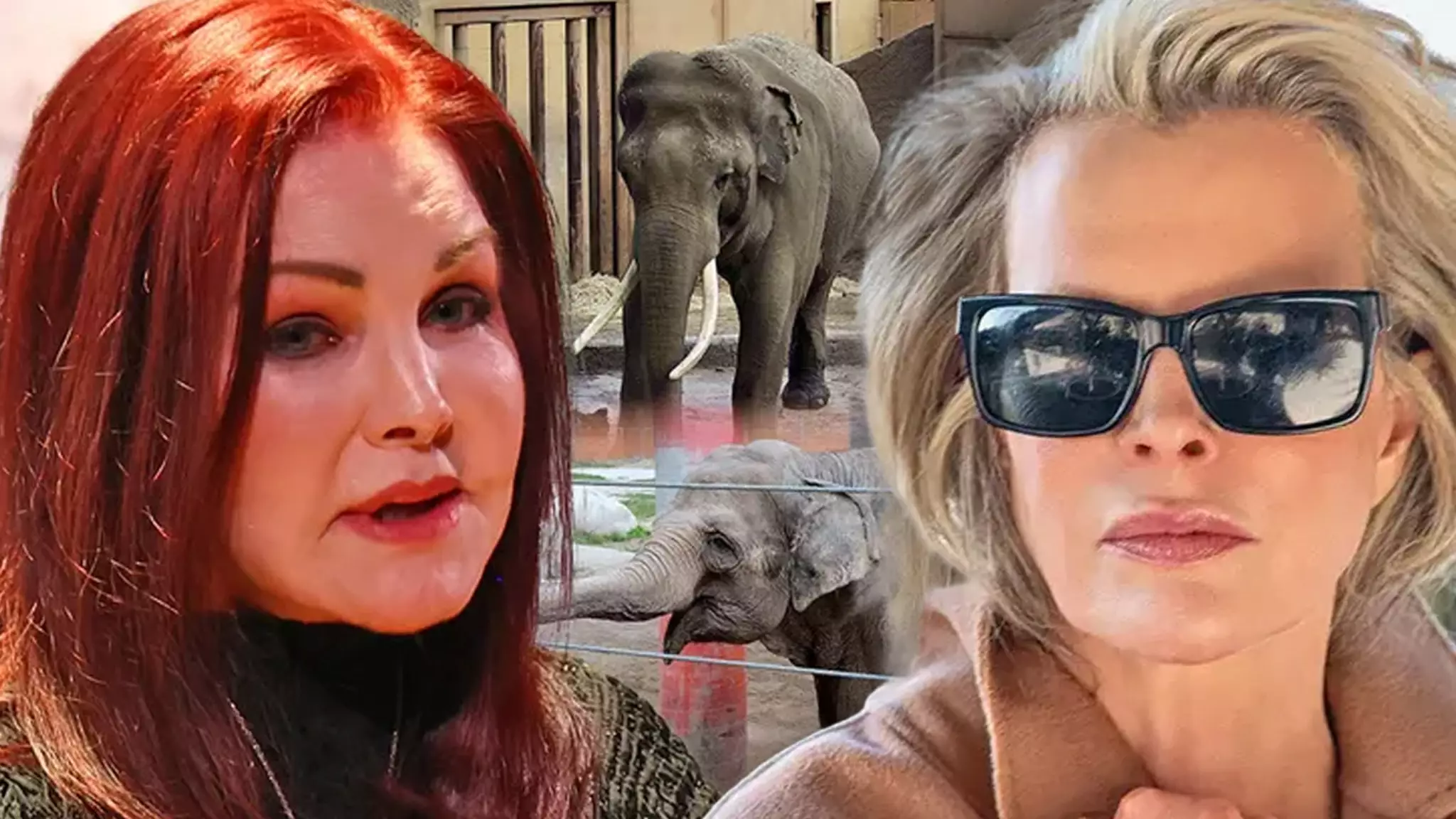In a shocking turn of events, Hollywood’s elite have raised their voices against the misguided decisions made regarding two Asian elephants, Tina and Billy, during a covert overnight transfer from the Los Angeles Zoo to the Tulsa Zoo. This action, seemingly taken to avoid public protest, has ignited a firestorm of criticism from animal rights advocates and celebrities alike. The passionate responses from figures like Priscilla Presley and Kim Basinger encapsulate a growing sentiment: that the welfare of these majestic animals has been sacrificed at the altar of bureaucratic indifference.
The decision to move Tina and Billy under the cover of night evokes not just outrage but a profound sense of betrayal. How could a city known for its culture and compassion allow such a blatant disregard for an animal’s basic rights? The plight of Tina, at 59 years old, and Billy, aged 40, serves as a poignant reminder of the egregious conditions many captive animals are subjected to. While city officials may invoke the justification of “comprehensive evaluations,” one cannot help but question the legitimacy of such assessments when they lead to the confinement of intelligent, social beings to yet another prison-like zoo.
A Hollywood Alliance for Change
The outcry from Hollywood is not an isolated incident; it is part of a larger movement seeking to end the captivity of elephants and ensure their well-being in sanctuaries designed for their species. With notable names like Cher and Alicia Silverstone rallying for their release, the demand for change is louder than ever. The emotional testimonials from celebrities underscore the urgent need to redefine our relationship with wildlife.
Presley’s declaration of being “devastated and outraged” resonates deeply, as her ten years of advocacy through Last Chance for Animals demonstrate a steadfast commitment to animal rights. Her assertion that Tina and Billy “deserved freedom” not only emphasizes the immediate need for sanctuary but reflects a broader moral obligation society carries toward animals entrapped in human constraints. The discrepancy between what these elephants deserve and what they are subjected to highlights a chilling reality in our treatment of sentient beings.
The Moral Imperative of Mayoral Responsibility
Kim Basinger’s pointed critique of Los Angeles Mayor Karen Bass reveals an essential truth about governance; leadership comes with an ethical responsibility to protect those who cannot protect themselves. The assertion that the option to relocate Tina and Billy to a sanctuary was a “slam dunk” carries significant weight, suggesting that the decision to transfer them to another institution was not only unnecessary but a clear demonstration of apathy. Basinger accuses Mayor Bass of a lack of compassion, a notion that casts a shadow on the city’s moral compass.
The critique digs deeper than mere policy disagreements; it argues for a re-evaluation of our treatment of captive animals in urban settings. Public servants must hold the well-being of all constituents—human and non-human—above the insular considerations of municipal operations. It beckons a challenge to the prevailing framework that prioritizes convenience over compassion, suggesting we must advocate for legislative changes that guarantee a future where elephants are free from the chains of captivity in Los Angeles County.
Rallying Democracy Through Activism
Perhaps the most inspiring aspect of this unfolding drama is the unity exhibited by animal rights advocates and Hollywood stars as they band together. Signing a letter to Mayor Bass, this coalition represents a significant intersection of celebrity influence and grassroots activism. It illustrates how popular figures can leverage their platforms for advocacy, encouraging their audiences to engage in meaningful discourse around issues of morality and ethics.
The fight for Tina and Billy is emblematic of a larger struggle faced by many captive animals around the globe. It underscores the necessity for all of us—celebrities and citizens alike—to question existing narratives surrounding zoos and sanctuaries. Are these institutions truly for the welfare of the animals, or do they merely serve as spectacles for human enjoyment? This provocative question invites critical discourse and demands action that prioritizes the innate rights of the animals we share our planet with.
In this battle for compassion, it is crucial to maintain momentum not only for Tina and Billy but also for countless others who suffer similarly. The public calls for action reflect not only a response to immediate needs but also a clarion call for systemic change—a societal commitment to dismantling the paradigms of captivity and extending a hand of empathy to the voiceless.

Leave a Reply